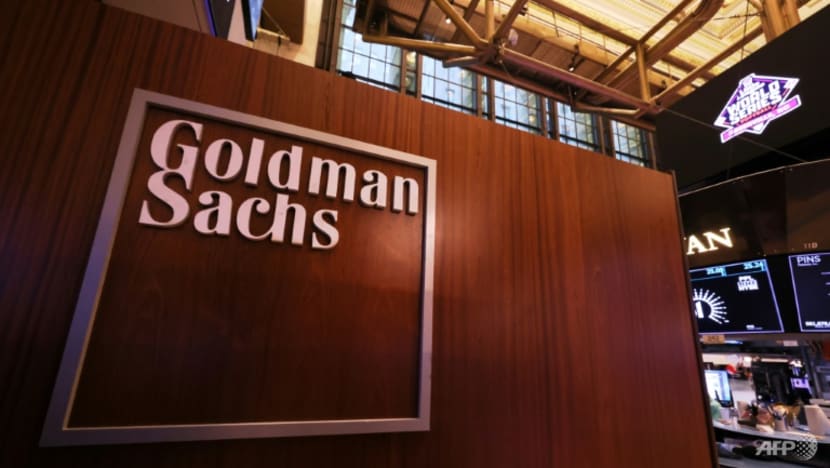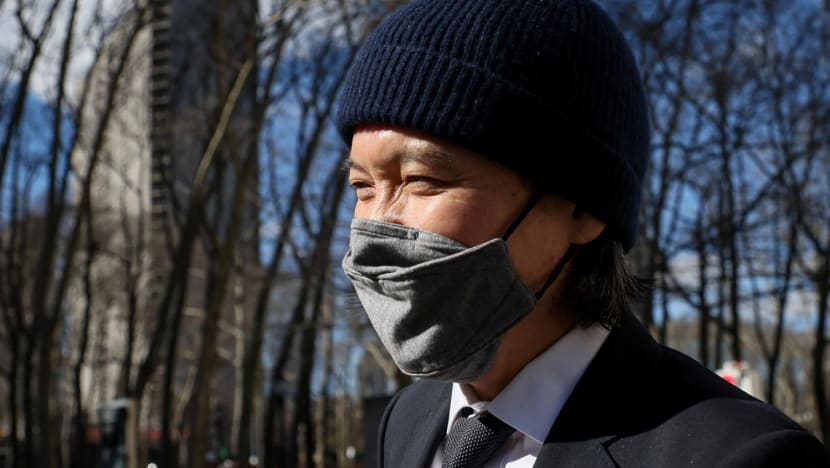Analysis: Malaysia’s spat with Goldman Sachs over 1MDB settlement deal could get ugly soon
The push to bring the dispute into arbitration in the London courts could reopen potentially embarrassing dealings by the global investment bank in the financial scandal.

SINGAPORE: The latest twist in the ongoing scandal at 1Malaysia Development Bhd (1MDB) is showing signs of turning into a political fiasco that could seriously singe former premier Muhyiddin Yassin and US banking giant Goldman Sachs — if details of a controversial settlement deal between them are revealed.
On Thursday (Oct 12), the US financial giant said it was taking Prime Minister Anwar Ibrahim’s government to court in London for violating key elements of the US$3.9 billion (S$5.3 billion) settlement agreement that it signed in August 2020 with the Muhyiddin administration.
The deal was classified under Malaysia’s tough Official Secrets Act.
But now, Goldman Sachs’ push to force Malaysia into arbitration in the London courts is forcing Kuala Lumpur to consider declassifying the confidential settlement agreement, said a senior government official, who is advising Mr Anwar on the asset recovery campaign.
“Malaysia has strictly followed provisions in the agreement, even in the event of handling disputes. Goldman Sachs is not,” the official, who declined to be named, told CNA.
He noted that there is a growing sentiment in the Anwar government for the agreement to be made public stemming from widely held perceptions of the settlement being paltry compared to losses suffered by the country.
The move by the global investment bank comes on the heels of a couple of key breakthroughs achieved by Anwar’s administration in turning up the heat on its campaign to pressure Goldman Sachs to willingly cough up a significantly higher settlement amount compared to the deal it reached with the Muhyiddin administration.
Late last week, Kuala Lumpur won a hard-fought custody battle with the US government for Roger Ng Chong Hwa, a convicted former senior Goldman Sachs employee whom the Anwar administration officials told CNA has pledged to provide previously undisclosed information related to the role Goldman Sachs played in US$6.5 billion 1MDB bond scandal.
Two days before Ng returned from New York under tight security on Oct 8, officials from the Malaysian Anti-Corruption Commission (MACC) raided the law offices of Rosli Dahlan Sarvana, whose senior partner Rosli Dahlan was the Muhyiddin government’s chief legal advisor in the 2020 settlement with Goldman Sachs.
At least three sources close to the situation, including government officials, have told CNA that the MACC raid was directly related to ongoing money laundering and corruption investigations into the 1MDB affair.
SERIOUS POLITICAL RAMIFICATIONS
Making the agreement public could have serious political ramifications, particularly for Mr Muhyiddin and parties directly involved in the Goldman Sachs settlement because it has long been attacked by government officials, including Mr Anwar, as poorly negotiated.

The government under Mr Muhyiddin’s predecessor, former premier Mahathir Mohamad, was demanding US$7.5 billion in damages from the US financial institution.
Goldman Sachs had arranged US$6.5 billion in 1MDB bonds in 2012 and 2013 and earned over US$600 million in fees from the fund-raising exercises that turned out to be elaborate schemes to embezzle funds that have implicated high-level government and banking officials in Malaysia and elsewhere.
Malaysia’s losses in the 1MDB bonds that Goldman Sachs arranged are staggering.
Apart from the principal amount of US$6.5 billion that Malaysian taxpayers have had to bear, the government has also stumped out another US$3.2 billion in interest payments to bondholders.
While local public debate over the latest developments in the 1MDB is likely to centre on Mr Muhyiddin, who is facing corruption, money laundering and abuse of power charges in the Malaysian courts, the pressure on Goldman Sachs could also intensify.
The 2020 settlement Goldman Sachs reached with Malaysia capped an expensive and embarrassing episode for one of the biggest names on Wall Street.
Related:
Now, the push to bring the dispute into arbitration in the London courts could reopen potentially embarrassing dealings by the bank in the affair, including how it reached the settlement deal with Mr Muhyiddin.
Details to the controversial settlement, which called for an immediate upfront US$2.5 billion payment and the remaining US$1.4 billion payment in staggered milestones, are now starting to seep out.
Within hours of the announcement by the US bank that it had initiated legal action against Malaysia, Mr Johari Abdul Ghani, who chairs the 1MDB Asset Recovery Taskforce set up by the Anwar government, said in a statement that the US$1.4 billion portion of the settlement deal did not call for outright cash settlements as previously thought.
The staggered milestone payments involved a complex arrangement that featured a guarantee by Goldman Sachs on the recovery of 1MDB-related assets that include luxury properties, hugely expensive paintings, jewellery and watches.
PART OF THE SETTLEMENT DETAILS SURFACE
Mr Johari explained that if the Malaysian government had not recovered assets amounting to US$500 million two years after signing the Aug 2020 agreement, the US bank would be required to pay US$250 million as an interim payment to Malaysia.
Mr Johari said the Malaysian government provided an accounting to Goldman Sachs in August 2022 that it had not recovered US$500 million and was entitled to the interim payment.
But Goldman Sachs disputed Malaysia’s position and, shortly after, leaned on a provision in the settlement agreement for parties to engage in a so-called “Amicable Good Faith Discussion” clause to resolve the matter.
In early September, the US bank requested a three-month extension to honour the US$250 million payment. After it expired, Goldman Sachs has asked for three more extensions and the last one is set to expire on Nov 8.
In its suit filed against Malaysia, the bank said in a statement: “We filed for arbitration against the government of Malaysia for violating its obligations to appropriately credit assets against the guarantee provided by Goldman Sachs in our settlement agreement and to recover other assets.”
Malaysian government officials told CNA last week that Kuala Lumpur had been considering entering into arbitration to settle the dispute if Goldman Sachs failed to meet the deadline.
In his statement, Mr Johari described the actions by Goldman Sachs as “premature and without due consideration of the necessary prerequisites”.
“Goldman Sachs’ action of initiating arbitration proceedings also appears to be an attempt to detract and divert attention away from their obligation to adhere to the Interim Payment of US$250 million requirement under the settlement agreement,” he added.
Mr Johari declined comment when contacted by CNA.
But another government official involved in the asset recovery noted that the Anwar administration had little choice but to push for a higher settlement.
“Goldman Sachs got US$600 million in fees, and we lost a big chunk of money. It is a sad Malaysian story,” he said.


















